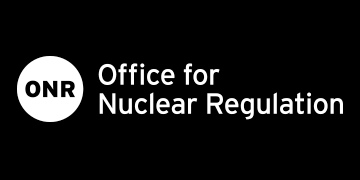Nuclear Reactors 561 - U.K. Office of Nuclear Regulation Reveals Plans For Brexit
The U.K. Office for Nuclear Regulation was established as a public corporation under the Energy Act of 2013 as the “independent, statutory regulator of nuclear safety, nuclear security, and conventional health and safety at nuclear sites in the UK.” (This would seem a bit tardy due to the fact that the first commercial power reactor in the world went into operation in the U.K. in 1965.)
The ONR just presented its latest Corporate Plan to Parliament. In the new Plan, it lists ten top priorities for 201802019. Included in the plan is the development of a new regime to satisfy safety requirements following the decision of Parliament to exit Euroatom to which it has been a signatory. Also included are measures to support the “implementation of a new emergency planning arrangements as a result of the Basic Standards Directive.”
The U.K. government stated in March that it would work closely with the ONR to make sure that it will be able to shoulder the responsibilities necessary to meet the U.K.’s mandated future domestic civil safeguards. This is necessary because the international standards and nuclear non-proliferation standards of the Euratom rules and regulation will no longer apply to the U.K. in the near future. The U.K. is planning on leaving the European Atomic Energy Community commonly referred to as the Euratom Treaty upon its exit from the European Union in March on 2019.
The ONR Plan says, "We regulate the safety and security of a significant nuclear legacy, radioactive waste, an ageing reactor fleet, ageing defense facilities, nuclear new build and the transport of civil radioactive materials. We also regulate conventional health and safety, including fire safety, on licensed nuclear sites and provide regulatory oversight for the transportation of civil nuclear materials. We also support the UK in meeting its safeguards obligations through facilitating the current activities of Euratom.”
“Following the UK's decision to leave the European Union, we will continue to work with government to meet the UK's continuing commitments (for example, the Nuclear Safety Directive) and identify and plan for changes required to implement revised government policy. We will support the UK government in managing a smooth exit from Euratom, particularly in relation to nuclear safeguards arrangements and helping ensure the UK's continued compliance with international standards.”
The Plan calls for setting up an U.K. system to account for and control nuclear materials; helping to develop new radiation emergency preparedness and public information regulations to amend the transportation regulations to support implementation of the Euratom Basic Safety Standards Directive of 2013; and, finally, implementing the NERA6 report, “The Economic Impact of ONR safety regulations”, action plant as agreed upon by its regulatory management team.
The ONR said that it will work with U.K. safeguard dutyholders and the inspectorates of the International Atomic Energy Agency (IAEA) and Euratom in order to continue safeguards compliance in the U.K. (up to March 2019). It will forward reports to Euratom and the IAEA as required about the U.K.’s obligations under the Nuclear Cooperation Agreements.
"The ONR will continue to support UK exit from Euratom, including through expert input to negotiations (e.g. to establish new trade agreements) and legislation (for example, to the Nuclear Safeguards Bill and development of nuclear safeguards regulations); establishing additional safeguards capability; and delivering a UK SSAC by 29 March 2019 that meets UK international reporting obligations.”
The ONR’s top ten organizational priorities includes plans to: “strengthen and improve engagement with stakeholders; enhance succession planning, leadership development and improve capability and capacity through recruiting and developing staff; simplify line management structures to provide more effective leadership and free up inspector time to perform regulatory duties; develop an internal improvement project to focus on leadership and improve ONR's culture; improve cyber security and information governance; modernise its IT systems; and update and improve knowledge management and business processes to improve efficiency and effectiveness throughout ONR.”
